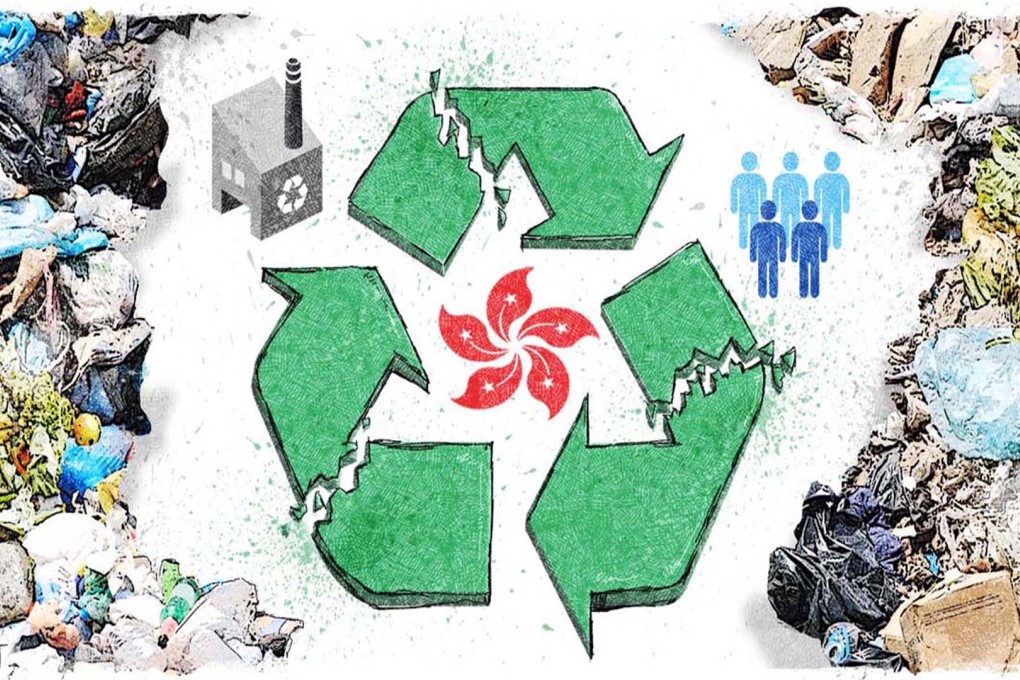Hong Kong's woeful recycling efforts a result of mistrust in the system and lack of government support for the industry
Doug Woodring blames government inertia and mistrust of the system for our woeful recycling rates

Hong Kong's system of waste management and resource recovery is ill-suited for our city, which has the embarrassing title of being one of the highest per capita waste producers in the world. The current waste system relies on just one option - burying our excesses in landfills, while relying on an unorganised community of cleaners, and elderly and small-scale entrepreneurs who hunt and gather paper, cardboard, metals and other items that might be aggregated for sale to China.
This system has worked in the past because there was enough landfill space and we could simply keep filling "holes" in the ground, as long as waste was quickly gathered from our streets and properties. The value of these resources was never seemingly considered in the quest for timely removal.
We now create over 9,000 tonnes of waste per day, with more than a third in the form of organic and food waste. The solution for the future is to send 3,000 tonnes per day to an incinerator, leaving another 6,000 tonnes to be dealt with in the "old-fashioned way" via landfills, which would still create a significant stress on the waste infrastructure.
Organic waste has value, as do virtually all of the other materials, including plastic, but we simply do not have the facilities, technology or even the mindset to handle this material properly. This is because the government has been afraid to support "industry" due to its "laissez-faire" policy. Such a hands-off approach never works with environmental improvements needed for social benefit.
Recycling is one area which has failed, and is failing, in lieu of what should be a moral obligation to the public to provide quality services. We can, and should, be one of the most efficient recycling populations in the world, because we live and work vertically - meaning collection from one location should result in high volumes of material being recovered.
Without trust in the system, unless fines and penalties are involved, there is little hope for widespread community engagement to solve our waste problems
Recycling requires scale to be effective, particularly for plastic, because of its light weight and disproportionate volume. Many rigid products and packaging do not easily compress, creating large waste streams filled with air, yet contained in a material that takes decades or centuries to degrade.